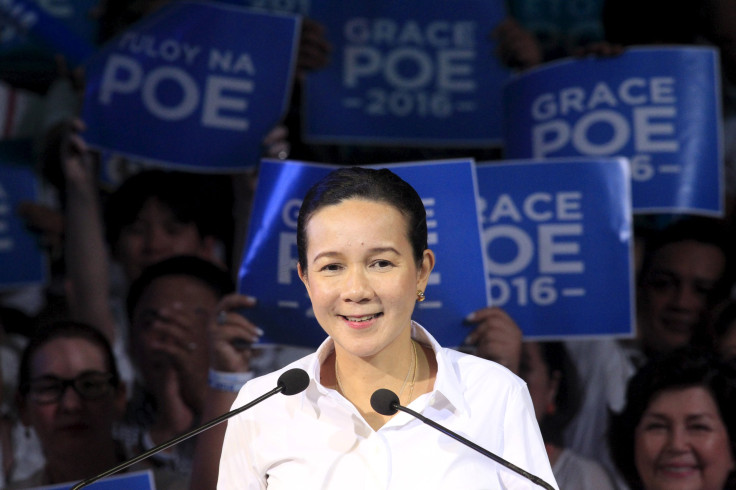Philippine Presidential Front-runner Disqualified Due To Residency Requirement

Philippine presidential front-runner Sen. Grace Poe was disqualified from running in next year's election for failing to meet a 10-year residency requirement, potentially rearranging the race. She can appeal the decision.
Poe says she moved back to the Philippines from the U.S. in 2005, which would make her eligible for the elections in May. But when she filed for her successful 2013 senatorial run, she stated that by the elections in May that year, she would have been a resident for "6 years and 6 months," indicating she had been a resident since November 2006, meaning she will be short by six months at the time of the elections next May.
"Respondent is required a residency in the country of as early as May 2006," a division of the Commission on Elections said on Tuesday, according to the Philippine Star, ruling on one of three disqualification cases filed against Poe. “She is not compliant with this basic requirement.”
Poe, who has said her "6 years and 6 months" statement three years ago was an "honest mistake," says she will appeal. She can appeal to the full commission and then if necessary the Court of Appeals and then the Supreme Court. Just last week, she won another case, related to her citizenship, at the Senate.
Poe lived in the U.S. from 1989, studying at Boston College and then starting her family in Fairfax, Virginia. She took U.S. citizenship in 2001 and says she moved back to the Philippines in 2005 and reacquired citizenship in 2006.
Poe's disqualification could rearrange the presidential race. She had 39 percent support in the most recent survey of Pulse Asia, one of the two big political pollsters in the country. That compares with 24 percent for Vice President Jejomar Binay and 21 percent for former Interior Secretary Manuel Roxas, the candidate of President Benigno Aquino III.
© Copyright IBTimes 2024. All rights reserved.




















